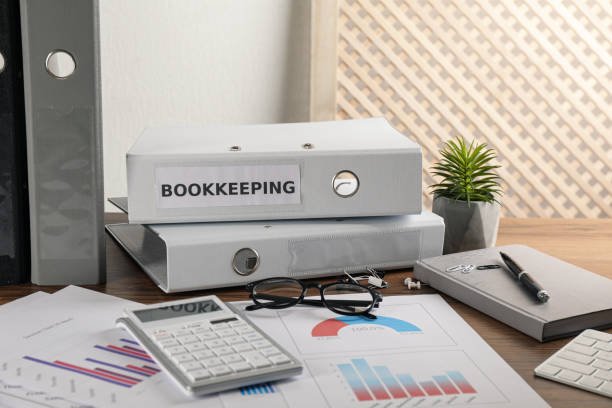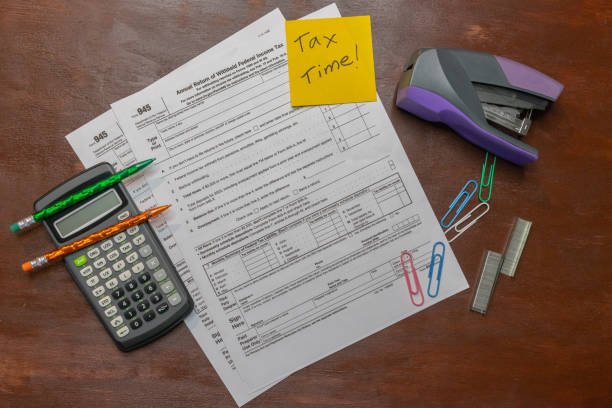Running a small business is tough. Bookkeeping doesn’t have to be. Discover how to transform this essential task into a strategic advantage that drives growth, saves time, and keeps your finances crystal clear.
Small business bookkeeping often feels like navigating a maze blindfolded. You know it’s important, but between serving customers, managing inventory, and growing your business, financial record-keeping can quickly become overwhelming. Many entrepreneurs view bookkeeping as a necessary evil—a compliance task that drains time and energy without providing immediate value.
But what if we told you that effective bookkeeping could be your secret weapon for business success? Smart financial management isn’t just about staying compliant with tax requirements. When done right, it becomes a powerful tool for strategic decision-making, cash flow optimization, and sustainable growth.
The landscape of small business bookkeeping has transformed dramatically. AI and automation technologies are making professional-grade financial management accessible to businesses of all sizes. Cloud-based accounting software, mobile expense tracking apps, and automated reconciliation tools are leveling the playing field, allowing small businesses to compete with larger enterprises through superior financial insight and control.
This comprehensive guide give Small Business Bookkeeping Tips , leverage cutting-edge technology, and transform your financial chaos into a profit-generating machine. We’ll explore real-world success stories, practical implementation strategies, and actionable tips that you can start using today.
Setting Up Your Bookkeeping System

Your bookkeeping foundation determines everything that follows. Like building a house, you need solid groundwork before adding the finishing touches. The two most critical decisions you’ll make are choosing your accounting method and establishing proper banking practices.
Choosing the Right Accounting Method
The accounting method you select affects how you record transactions, report income, and calculate taxes. Most small businesses choose between cash accounting and accrual accounting, each offering distinct advantages depending on your business model and size.
Cash accounting records transactions when money actually changes hands. When you receive payment from a customer, you record the income. When you pay a supplier, you record the expense. This method provides a clear picture of your actual cash position and works well for service-based businesses, freelancers, and companies with straightforward operations.
Accrual accounting records transactions when they occur, regardless of when payment is received or made. If you invoice a client in December but receive payment in January, you record the income in December. This method provides a more accurate picture of your business performance over time and is required for businesses with average annual gross receipts exceeding $27 million over the prior three-year period.
For most small businesses, cash accounting offers simplicity and clarity. However, if you carry inventory, have long-term contracts, or plan to seek investment, accrual accounting may better serve your needs. Consider consulting with a tax professional to determine which method aligns with your business goals and compliance requirements.
Opening a Business Bank Account
Separating your personal and business finances is non-negotiable. A dedicated business bank account creates a clear boundary between your personal financial life and your company’s operations. This separation simplifies bookkeeping, protects your personal assets, and provides credibility with vendors, customers, and potential lenders.
Choose a business checking account that aligns with your transaction volume and banking needs. Many banks offer small business accounts with features like mobile check deposit, integrated payment processing, and accounting software connectivity. Look for accounts with reasonable fees, convenient branch or ATM access, and robust online banking capabilities.
Consider opening a business savings account for tax reserves and emergency funds. Setting aside 25-30% of your income for taxes and maintaining 3-6 months of operating expenses in an emergency fund provides financial stability and peace of mind.
Essential Bookkeeping Practices
Consistency transforms good intentions into measurable results. These fundamental practices form the backbone of effective financial management, ensuring accuracy and providing the insights needed for informed decision-making.
Tracking Income and Expenses
Diligent income and expense tracking provides the foundation for all financial analysis and tax preparation. Every dollar that flows in and out of your business tells a story about your operations, customer behavior, and operational efficiency.
Record all income sources separately to understand which products, services, or customer segments drive your profitability. Create categories for different revenue streams, whether that’s product sales, service fees, consulting income, or recurring subscriptions. This granular approach helps identify trends, seasonal patterns, and growth opportunities.
Expense tracking requires equal attention to detail. Organize expenses into logical categories such as:
- Cost of goods sold (materials, inventory, direct labor)
- Operating expenses (rent, utilities, insurance, office supplies)
- Marketing and advertising costs
- Professional services (legal, accounting, consulting)
- Equipment and technology expenses
- Travel and entertainment
Take photos of receipts immediately using your smartphone. Most accounting software includes mobile apps that can scan and categorize receipts automatically. This simple habit prevents lost documentation and reduces the stress of tax preparation.
Reconciling Bank Statements
Monthly bank reconciliation ensures your records match your bank’s records, catching errors, unauthorized transactions, and timing differences that could affect your cash flow analysis. This process involves comparing your internal records with your bank statement and identifying any discrepancies.
Start by gathering your bank statement, credit card statements, and internal financial records for the same period. Compare each transaction, checking that amounts, dates, and descriptions match between your records and the bank’s records.
Common discrepancies include:
- Outstanding checks that haven’t cleared
- Deposits in transit
- Bank fees or interest not recorded in your books
- Duplicate entries or recording errors
- Unauthorized or fraudulent transactions
Address discrepancies immediately. Contact your bank about unauthorized transactions, correct recording errors in your accounting system, and adjust for legitimate bank fees or interest. Regular reconciliation helps maintain accurate financial records and provides early warning of potential cash flow issues.
Leveraging Technology for Efficient Bookkeeping

Technology has revolutionized small business bookkeeping, making professional-grade financial management accessible and affordable. The right tools can reduce manual data entry, minimize errors, and provide real-time insights into your business performance.
Utilizing Accounting Software
Modern accounting software transforms time-consuming manual processes into automated workflows. Consider exploring the Best SaaS Accounting Software options to find solutions that match your business needs and budget.
Cloud-based platforms like QuickBooks Online, Xero, and FreshBooks offer comprehensive features including:
- Automated transaction categorization
- Bank and credit card connectivity
- Invoice generation and payment processing
- Financial reporting and analytics
- Tax preparation integration
- Multi-user access and collaboration tools
Take the example of Maria’s Artisan Bakery, a local business that implemented QuickBooks Online last year. Before automation, Maria spent 8-10 hours weekly on bookkeeping tasks, manually entering sales data, tracking expenses, and preparing invoices. After implementing cloud-based accounting software, she reduced her bookkeeping time by 50%, from 8 hours to 4 hours per week. The automated bank feeds eliminated duplicate data entry, while automated invoicing improved cash flow by reducing payment delays.
The time savings allowed Maria to focus on recipe development and customer service, directly contributing to a 25% increase in monthly revenue. More importantly, real-time financial dashboards helped her identify which products generated the highest margins, leading to menu optimization that further improved profitability.
Choose software that scales with your business growth. Basic plans typically handle core bookkeeping functions, while advanced plans include features like inventory management, project tracking, and advanced reporting. Most platforms offer free trials, allowing you to test functionality before committing.
Mobile Bookkeeping Apps
Mobile apps extend your bookkeeping capabilities beyond the office, enabling real-time expense tracking and financial management from anywhere. This mobility is particularly valuable for businesses with field operations, frequent travel, or multiple locations.
Consider the success story of TechStart Solutions, a consulting startup that leveraged mobile bookkeeping apps to transform their expense management. The founders frequently traveled to client sites, accumulating numerous small expenses like parking fees, meals, and transportation costs. Before mobile apps, they relied on paper receipts and manual entry, leading to lost documentation and incomplete expense records.
After implementing Expensify and connecting it to their QuickBooks Online account, they could photograph receipts instantly, categorize expenses on the go, and automatically sync data to their accounting system. This real-time tracking improved their expense recovery from clients by 40% and simplified tax preparation significantly.
The mobile approach also provided better visibility into spending patterns. Real-time expense alerts helped them stay within budget on client projects, improving project profitability and client relationships.
Popular mobile bookkeeping apps include:
- Expensify for expense tracking and receipt management
- QuickBooks Mobile for full accounting functionality
- Wave Receipts for simple receipt scanning and categorization
- Mint for budget tracking and financial overview
Preparing for Tax Season

Proactive tax preparation transforms a stressful annual event into a manageable business process. Year-round tax planning not only ensures compliance but also maximizes deductions and minimizes tax liability.
Estimating Quarterly Taxes
Self-employed individuals and businesses typically must pay estimated taxes quarterly to avoid penalties and cash flow crunches during tax season. Calculate your expected annual income, subtract deductions, and determine your estimated tax liability.
The IRS requires quarterly payments if you expect to owe $1,000 or more in taxes for the year. Base your estimates on the previous year’s tax liability or 90% of the current year’s expected liability, whichever is smaller.
Set up a separate savings account for tax reserves. Automatically transfer 25-30% of your income to this account, ensuring funds are available when quarterly payments are due. This approach prevents the cash flow strain that occurs when tax bills arrive unexpectedly.
Organizing Tax Deductible Expenses
Proper organization throughout the year makes tax preparation efficient and ensures you don’t miss valuable deductions. Common small business deductions include:
- Home office expenses (if you work from home)
- Business equipment and software purchases
- Professional development and training costs
- Marketing and advertising expenses
- Professional services (legal, accounting, consulting)
- Business insurance premiums
- Vehicle expenses for business use
- Business meals and entertainment (subject to current tax rules)
Create a dedicated folder—physical or digital—for tax-related documents. Scan important receipts and store them in categorized folders within your accounting software or cloud storage system. This organization pays dividends during tax preparation and provides documentation in case of an audit.
Consider working with a qualified tax professional, especially as your business grows more complex. A good accountant can identify deductions you might miss, ensure compliance with changing tax laws, and provide strategic tax planning advice that saves money beyond their fees.
Common Bookkeeping Mistakes to Avoid
Even well-intentioned business owners make bookkeeping errors that can cause significant problems. Understanding these common mistakes helps you implement systems and processes that prevent costly issues.
Mixing Personal and Business Finances
Using personal accounts for business expenses or vice versa creates confusion, complicates tax preparation, and can jeopardize your business’s legal protection. This mixing can also trigger IRS scrutiny and make it difficult to track business performance accurately.
Establish clear boundaries from day one. Use your business credit card exclusively for business expenses, pay yourself a regular salary or owner’s draw, and maintain separate accounts for all business activities. If you accidentally use a personal card for a business expense, reimburse yourself through proper channels and document the transaction clearly.
Neglecting to Reconcile Accounts Regularly
Infrequent reconciliation allows errors to compound, making them harder to identify and correct. Monthly reconciliation should be as routine as paying rent or updating your website.
Create a monthly closing checklist that includes:
- Bank account reconciliation
- Credit card reconciliation
- Accounts receivable review
- Accounts payable review
- Financial statement review
- Key performance indicator analysis
Regular reconciliation also helps identify fraudulent activity quickly, minimizing potential losses and complications.
Consider the case of Southwest Retail Solutions, a small business that learned this lesson the hard way. They reconciled accounts quarterly rather than monthly, assuming their automated systems eliminated the need for frequent review. During a routine quarterly reconciliation, they discovered a series of unauthorized transactions totaling $3,200 that had occurred over six weeks. Because they waited so long to reconcile, the bank’s investigation process was complicated, and they ultimately absorbed a portion of the loss.
After implementing monthly reconciliation, they caught a similar unauthorized transaction within days, allowing for immediate resolution and full recovery of funds. The monthly process takes about 30 minutes but provides invaluable peace of mind and financial protection.
FAQ About Small Business Bookkeeping Tips
What accounting method is best for my small business?
Most small businesses benefit from cash accounting due to its simplicity and clear cash flow visibility. However, if you carry significant inventory, have long-term contracts, or plan to seek investment, accrual accounting may provide more accurate financial reporting. Businesses with average annual gross receipts exceeding $27 million must use accrual accounting.
How can accounting software help my business?
Modern accounting software automates routine tasks, reduces errors, and provides real-time financial insights. Key benefits include automated bank feeds, invoice generation, expense categorization, financial reporting, and tax preparation integration. This automation can reduce bookkeeping time by 50% or more while improving accuracy and financial visibility.
What are common bookkeeping mistakes to avoid?
The most critical mistakes include mixing personal and business finances, neglecting regular account reconciliation, failing to track all income and expenses, avoiding professional software, and postponing tax planning until year-end. These errors can lead to inaccurate financial records, missed deductions, cash flow problems, and compliance issues.
How often should I reconcile my bank statements?
Reconcile all business accounts monthly, ideally within the first week of each month. Regular reconciliation catches errors and unauthorized transactions quickly, maintains accurate financial records, and provides confidence in your financial reporting. Quarterly reconciliation is insufficient and can allow problems to compound.
Should I hire a bookkeeper or do it myself?
This depends on your business complexity, available time, and comfort with financial management. Simple service businesses might handle basic bookkeeping internally using accounting software. However, consider professional help if you have inventory, multiple revenue streams, employees, or complex transactions. As explored in our article Success100x.com Factors, delegating financial management often frees entrepreneurs to focus on growth activities that generate higher returns.
What are the tax implications of poor bookkeeping?
Poor bookkeeping can result in missed deductions, inaccurate tax filings, penalties for late or incorrect payments, and increased audit risk. Accurate records are essential for substantiating deductions and proving business expenses. The cost of professional bookkeeping is typically far less than the penalties and missed opportunities that result from poor financial management.
How can I use bookkeeping to make better business decisions?
Regular financial reporting provides insights into profitability by product line, customer segment, or service category. Track key metrics like gross margin, customer acquisition cost, and cash flow patterns. This data helps identify growth opportunities, cost reduction possibilities, and seasonal trends that inform strategic planning.
What are the best practices for tracking income and expenses?
Implement systems for immediate transaction recording, whether through mobile apps, automated bank feeds, or daily entry routines. Categorize transactions consistently, photograph receipts immediately, and reconcile accounts monthly. Create separate categories for different revenue streams and expense types to enable detailed analysis and reporting.
How can I keep my business and personal finances separate?
Open dedicated business banking and credit card accounts, use them exclusively for business transactions, and pay yourself through proper channels (salary, owner’s draw, or distributions). Never use business accounts for personal expenses or personal accounts for business expenses. This separation protects your business structure and simplifies tax preparation significantly.
Where can I find resources and support for small business bookkeeping?
Organizations like SCORE provide free mentoring and resources for small business financial management. Professional associations, accounting software companies, and educational institutions offer training programs. Consider our guide on Business Ideas Using AI Tools for innovative approaches to streamlining your financial processes.
Taking Control of Your Financial Future
Transforming your bookkeeping from a chore into a strategic advantage is within your reach. The combination of proper systems, modern technology, and consistent execution creates a foundation for sustainable business growth and financial success.
Start with the basics: establish dedicated business accounts, choose appropriate accounting software, and implement monthly reconciliation routines. These fundamental practices provide the accuracy and insights needed for effective decision-making. As your systems mature, leverage automation tools and mobile applications to increase efficiency and reduce manual effort.
Remember that effective bookkeeping extends far beyond tax compliance. It’s about understanding your business performance, identifying opportunities for improvement, and making data-driven decisions that drive growth. The examples we’ve shared—from Maria’s Bakery reducing bookkeeping time by 50% to TechStart Solutions improving expense recovery by 40%—demonstrate the tangible benefits of proper financial management.
The journey to financial clarity starts with mastering your books. Take the first step today by implementing one or two strategies from this guide. Whether that’s opening a dedicated business account, exploring accounting software options, or establishing a monthly reconciliation routine, each action moves you closer to the financial control and business success you deserve.
Don’t let bookkeeping be a burden; let it be your guide. Follow these practices, embrace available technology, and watch your small business transform from financial chaos into a profit-generating machine. Your future self will thank you for the investment in proper bookkeeping systems and processes.
Meta data
Meta title
Small Business Bookkeeping Tips That Drive Growth & Success
Meta description
Master small business bookkeeping with AI automation, mobile apps & proven strategies. Transform financial chaos into profit with expert tips & real examples.


